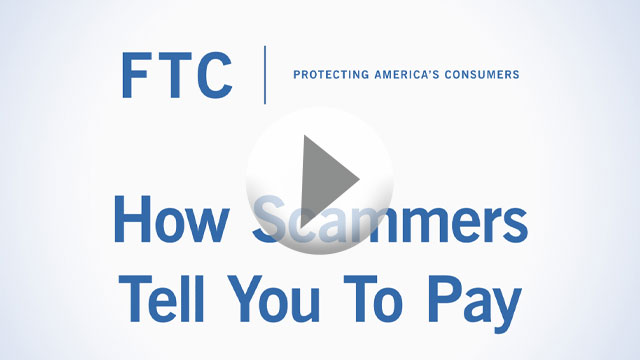Scammers make up all kinds of stories to get your money, from telling you that you’ve won a prize, you owe a debt, or your family member is in an emergency. But some things stay the same: scammers want your money, they want it fast, and don’t want you to be able to get it back. They’ll ask you to pay in ways that make it hard to track them down — and once you know what these are, you’ll have one more clue to tell if you’re dealing with a scammer.
Watch this video to learn how scammers make people pay, and how you can use this information to avoid scams.
And next time someone insists you pay using one of these methods, tell the FTC.


In reply to I met someone on a dating by enerol18
In reply to I met someone on a dating by enerol18